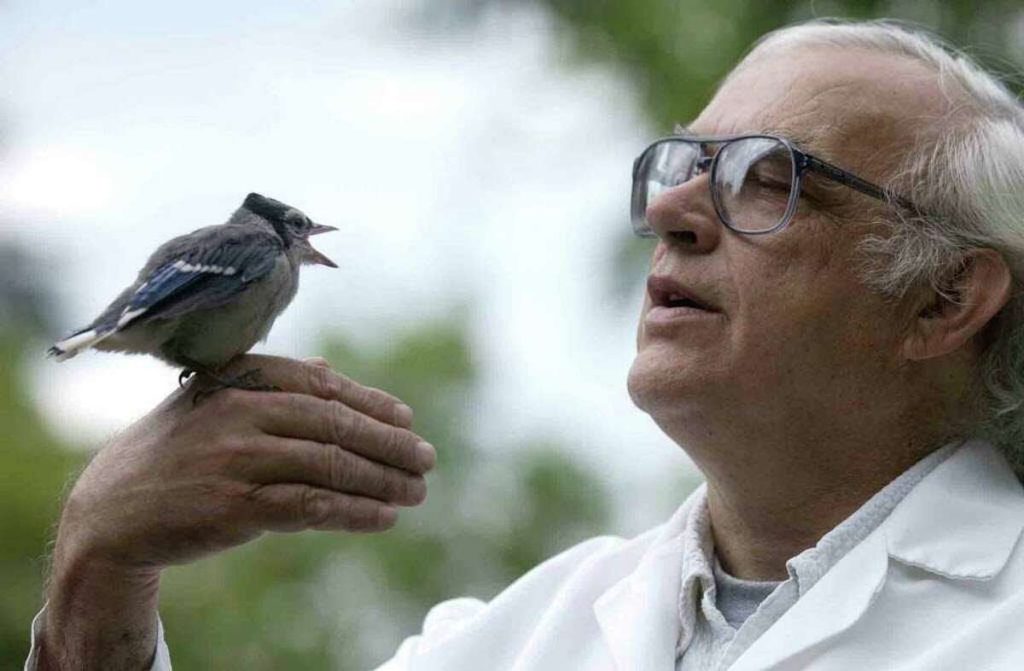By Ted Remsnyder | February 9, 2023
TROY — Ward Stone, who served as the state’s wildlife pathologist for over four decades, died Wednesday morning at Columbia Memorial Hospital in Hudson after a long illness.
Stone, who held his post with the Department of Environmental Conservation from 1969 until his retirement in 2010, left behind a long legacy of environmental advocacy in his 41 years on the job.
Stone, 84, is survived by six children and his longtime partner Mary Bayhan.
Montana Stone said on Thursday that her father developed a love for nature while traversing local streams and trails while growing up in Columbia County, cementing a lifelong passion that would inform his life’s work.
“He had an extraordinary life,” Stone said. “There’s not many people who have been able to come from a one-room schoolhouse in Spencertown, New York to accomplish all that he did. From being a Navy corpsman in Vietnam to speaking at the United Nations and discovering diseases like West Nile.”
Roger Downs, conservation director of the Sierra Club Atlantic Chapter, praised Stone’s legacy as an environmental champion.
“In his position as state wildlife pathologist, Ward Stone shone a light on environmental threats long before others could notice them and gave a science-based voice to nature in times of crisis when few other state officials would listen,” he said. “His methods were sometimes unconventional but he always chose to pursue environmental justice first before pointless bureaucracy and the natural world is a better place because of his fearless advocacy.”
Lynne Jackson of Save the Pine Bush, a non-profit organization dedicated to saving the Albany Pine Bush, first heard Stone speak at a college presentation in 1973.
“He spoke about the effect that some chemicals like lead had on animals,” Jackson said on Thursday. “His contribution is really incredible. Save the Pine Bush first had him speak to our group in the ’90s and I still remember that evening. He gave a very powerful presentation that was similar to the one that he gave when I was a student because he talked about the effects of lead on animals and birds. He did so much for the environment and he was so important to the issues of chemicals and pollution.”
Stone’s tenure with the DEC did not end without controversy, as a report released by New York’s inspector general in 2012 claimed that Stone had utilized his workspace at the DEC’s Wildlife Resource Center in Delmar as his residence and used the agency’s vehicles for personal use. The report stated that Stone had repeatedly refused to abide by agency policies and at times belittled his subordinates while on the job.
Albany civil rights lawyer Lewis Oliver on Thursday said that Stone was a fierce advocate for the environment.
“He believed that animals were like bellwethers of things that would protect humans and he was constantly at war with the governors who always sided with industry,” Oliver said. “He was constantly battling with [former governors] Mario Cuomo, George Pataki, Andrew Cuomo and all of the DEC commissioners. Because of his integrity, fighting spirit and environmental victories it made it difficult to fire him.”
Prior to his retirement, Stone hosted a call-in show titled “In Our Backyard” on WAMC Northeast Public Radio and published more than 250 peer reviewed articles.
“He once said that he slept pretty good at night knowing he had done all he could do to help preserve the Earth, and that he could have done even more if he hadn’t been attacked for doing too good a job,” Grace Nichols, volunteer at the Wildlife Pathology Unit in Delmar said on Thursday. “And indeed, Ward found constant controversy as he stood up even when he had to confront bad government or corporate policies. But he would do it again. It was a life well lived.”
Following his retirement, Montana Stone said, her father continued to stay close to nature.
“He was still working,” she said. “He did a lot of radio shows, writing and a lot of reading. He rediscovered a love of gardening, everything from scarlet runner beans to Indian corn.”
